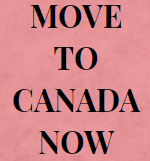So you want to move to Canada...
If you currently reside OUTSIDE of Canada
Do any of the following situations apply to you?
▪ Do you have a valid work permit for Canada?
▪ Are you fluent in English and/or French? If so, do you have a 3- or 4-year university degree or higher education? Do you have at least 1 year of skilled work experience?
▪ Do you have a genuine job offer in Canada?
▪ Have you previously worked in Canada in a skilled job for a minimum of 1 year in the last 3 years?
▪ Do you have at least 2 years of experience as a self-employed person in cultural activities or athletics, or have participated in cultural activities or athletics at a world-class level?
▪ Do you have an innovative business idea, as well as the support of an IRCC-approved venture capital/investor group or business incubator?
▪ Do you have a spouse or partner that is a Canadian Citizen or permanent resident?
If any of the above situations apply, contact us as you may have potential to apply.
If you are currently IN Canada, what is your status?
Our team consists of highly qualified and motivated professionals, who are all experts in their field. With many years of experience in the industry, they have the expertise to provide comprehensive, first-rate services to our clients.

Work Permit
Is your work permit open or employer specific?
If employer specific, you may have potential to apply.
If open, is it a post-graduate work permit, or do you have a spouse with a study permit or closed work permit? If so, you may have potential to apply.

Study Permit
Do you have at least 1 year of full-time skilled work experience (in Canada or abroad)? If so, you may have potential to apply.
If not, what is your program of study, and when do you graduate? You may have potential to apply once you have 6 months or more of work experience following graduation.

Visitor
See the 'Out of Canada' questions above to determine if you have the potential to apply.

Other
If your status expired more than 90 days ago, you do not qualify to apply through an economic class application. You will need to consult a lawyer to determine if you have any other immigration options available.
The above list is not exhaustive and addresses the more common factors involved in qualifying for immigration to Canada. You should always consult an immigration lawyer to assist you in determining your potential to apply for residency in Canada.
If you are moving to Canada and bringing your household goods, here are some things to consider.
Duties & Taxes
When bringing goods into Canada the CBSA collects duty and taxes on imported goods on behalf of the Government of Canada. Rates of duty are established by the federal Department of Finance and can vary significantly from one good to another as well as from one free trade agreement to another.
Even if you have no goods with you on arrival, you must give your list of goods to the border services officer at your first point of entry in Canada.
The CBSA has areas at most major airports where you can pay any duty or taxes you owe while waiting for your baggage to arrive. Border services officers are there to assist you. If you arrive by land, a border services officer will direct you to where you can pay duty and taxes.
Restricted Items
There are some things you cannot bring into Canada, including
- Some food, plants, animals and related products
- Certain health products and prescription drugs
- Goods contaminated with soil
- Firewood
- Prohibited consumer products
- Cultural property, including antiques and fossils
- Some firearms and weapons
- Explosives, fireworks, and ammunition
- Obscene material
- Used or second-hand mattresses
For the complete list of restricted items, please refer to the official CBSA website
Pets & Animals
All animals entering Canada must meet import requirements including domestic and non-traditional pets. Import conditions can include testing and quarantine, before entering Canada.
Non-traditional pets such as pigs, sheep, goats and poultry (including, but not limited to, ducks and pigeons) represent the same level of animal disease risk as farmed animals and must therefore meet the same import conditions.
Firearms
When you enter Canada, you must declare all firearms and weapons to the Canada Border Services Agency (CBSA). If you do not, they may be seized and you could face criminal charges. You need documents to prove that you are entitled to possess a firearm in Canada, and you must transport it safely.
Importers are reminded that foreign countries, including the United States, have different legal requirements that apply to the purchase, possession, transportation and exportation of firearms, ammunition, weapons and related items. It is recommended that you contact the appropriate authorities to determine if any requirements apply to your situation.
We need your consent to load the translations
We use a third-party service to translate the website content that may collect data about your activity. Please review the details in the privacy policy and accept the service to view the translations.

